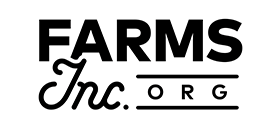She was accepted into a master’s in medical cannabis science and therapeutics program at the University of Maryland at Baltimore, the first graduate program of its kind in the country.
Natalie Eddington, dean of the University of Maryland School of Pharmacy, had read a 2017 report by the National Academies of Sciences, Engineering and Medicine on the health effects of cannabis and cannabinoids. The report drew from scientific articles about the use of medical cannabis for managing pain and treating the side effects of chemotherapy and other health conditions.
Eddington wondered whether medical, nursing and pharmacy students were being taught the information. She said statistics revealed that less than 10 percent of medical schools nationwide offered courses on cannabis.
The findings and other data led the pharmacy school to present a proposal to university management for a program that focused on cannabis science, policy and patient care. Approvals were also needed from the Maryland Higher Education Commission and the Maryland Attorney General’s Office.
Based at the Universities at Shady Grove in Rockville, the two-year program was introduced in the fall of 2019 with an enrollment goal of 50 students. The school received more than 500 applications and enrolled 150 students from 31 states, D.C., Hong Kong and Australia. Students range in age from 23 to 73, and nearly 70 percent are women.
Applicants are required to have a bachelor’s degree, and to work or have vocational interest in the medical cannabis industry. The school reports that 75 percent of first-year students had no prior cannabis industry experience. Eddington said elective courses were designed to match the range of students’ career goals.
“It is clear from our application and enrollment numbers that we are meeting an academic need,” said Leah Sera, a pharmacist and the program administrator and course manager. Enrollment increased for the 2020-22 cohort to 250 students.
Courses are held virtually on Blackboard and are asynchronous, meaning students do not have to log on at a specific time. There are prerecorded lectures by program faculty, and students also participate in online discussion boards, independent writing assignments and group projects, Sera said.
Almonte’s group project this semester was to identify real-world gaps in the industry and develop solutions. Her team is creating medical-cannabis education materials for international physicians.
Almonte, who serves as class ambassador, said she has most enjoyed classes on cannabinoid chemistry and testing methodology, as well as one on therapeutics. After graduation, she plans to pursue a doctoral degree in neuroscience with an emphasis in cannabinoids, which is offered at UMB. Her goal is advocacy work with veterans and the military.
She said networking with other students has been valuable. “Rubbing shoulders with cannabis industry leaders [that] are hitting it out of the park has provided me with the confidence to be an influencer in the space,” Almonte said.
The Maryland degree program seeks to appeal to working adults with diverse backgrounds and not just those with science credentials, Sera said.
Jacquie Cohen Roth, a second-year student, owned a medical publishing company before her pivot into the cannabis industry. An Annapolis-area resident, Cohen Roth, 60, runs CannabizMD.com, an industry and science education consultancy. “The scientific knowledge I’ve acquired to date in the program has really helped me go toe-to-toe with industry experts,” said Cohen Roth, who is also the founder of Tea Pad, a company committed to social-justice education and initiatives that raises money for minority entrepreneur scholarships.
In addition to their online classwork, students attend a twice-a-year symposium at the Rockville campus. This year’s events were held virtually because of the pandemic, which Eddington said offered organizers a chance to invite speakers who might not otherwise be able to participate in person. A recent endowed lecturer was Raphael Mechoulam, a cannabis research scientist based in Israel.
Sera said school officials have heard from many in the cannabis industry and in academics that the University of Maryland at Baltimore program has helped to legitimize cannabis as a medical treatment.
